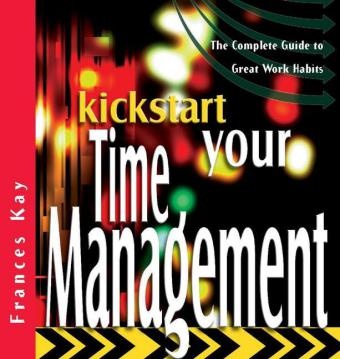Read more
Informationen zum Autor France Kay is a professional organiser/administrator. In 1996, she founded her own consultancy, Kayac Ltd, which helps companies large and small maximise their efficiency by supplying services in project and event organisation, corporate strategies, database/IT systems and concierge services. Frances has contributed to several business books and is highly active in many networks, including giving presentations and talks. Klappentext Whoever we are and whatever we do, we no doubt have things that we want to achieve. To do this, effective time management is essential. Put simply, those who are most organized are the people most likely to succeed. Frances Kay's brilliantly clear and straightforward guide will give you all the tools and advice you need to keep the thieves of time at bay! This indispensable book will enhance your understanding of why time management is so important, as well as providing you with the skills to manage your time more effectively, through numerous hints, tips, exercises and action plans. It will enable you to improve your time management in the home, workplace, with other people and technology, while keeping stress to a minimum, and provides a maintenance plan to help you to keep up the good habits. Kickstart Your Time Management is an absolute must-have for anyone who wants to be more productive, enhance their performance and improve their output and efficiency, and have more time to do the fun things in life! Zusammenfassung Effective time management is an issue which affects our working routines! as well as our lives outside of work. An effective regime will help alleviate stress! free up time for more personal interests! as well as help put some order and direction into your life. Inhaltsverzeichnis Chapter 1: Time Management - what is it? The time and stress crisis. Why are we always so short of time. Some common assumptions. Main issues. Chapter 2: What sort of person are you? Knowing ourselves is the key to success. Activity analysis exercise. Understanding the difficulties. Reactive and proactive behaviour. Challenge ourselves. Chapter 3: Making a start. Good habits v. bad. How to adapt. Action plan for time management. What needs to be changed to succeed. Goals that are worth the effort. Chapter 4: Stressed? Health related issues and work/life balance. Coping with stress. Defining positive and negative stress situations. Why try to do it all? Creating personal reserves. Chapter 5: Time Management in the home. When did we last read a book? How to meet the demands of domestic life. Stop trying to prove we're perfect. Avoiding exploitation - lighten the load. Chapter 6: Time Management at work. All the Ds : de legating, deadlines, drop it or do it. Interruptions and how to deal with them. Focus on the present. Developing contingency plans. Chapter 7: People management - clients and staff; friends and family. Communicating effectively. Introducing boundaries - without causing offence. How to spot the HMPs in your life (High Maintenance People). Assertive techniques for dealing with awkward situations. Chapter 8: How to manage technology and make the most of it. Beating the gremlins. Coping with glitches, problems and catastrophes. Fighting the paper war. Reduce those piles. Alternative ways of dealing with internal communications. Chapter 9: Meetings - social and professional - the classic time wasters. Goals for success - planning, agendas, time keeping, focus. Are we sitting too comfortably? Knowledge management - controlling information and knowledge. What to keep and how to find it. ...

